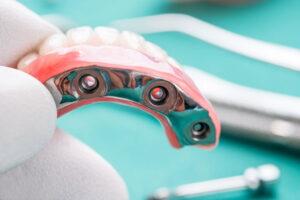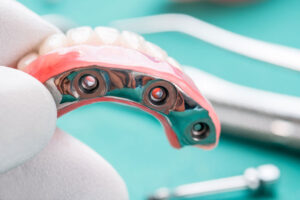
After receiving a dental implant, considering blood donation raises valid concerns about health and implant success. While the answer isn’t a simple “yes” or “no,” it’s generally safe to donate blood after this procedure. However, waiting for complete healing, typically a few weeks, is crucial. Consult your dentist for individual recommendations, and disclose recent dental procedures during blood donation. Following these guidelines ensures a safe and successful donation post-dental implant.

Can You Donate Blood After Dental Implant?
When it comes to dental implants, many people have questions about what they can and cannot do after the procedure. One common concern is whether or not they can donate blood. If you’ve recently had a dental implant, you may be wondering if it’s safe to donate blood and if there are any restrictions. In this article, we will explore whether or not you can donate blood after a dental implant, and what factors you need to consider.
Understanding the Healing Process
- Dental Implant Surgery: Involves placing a titanium implant into the jawbone as a foundation for replacement teeth.
- Osseointegration: The healing process where the implant integrates with the bone, often spanning several months.
- Care Instructions: Essential post-surgery care involves following dentist’s guidelines, avoiding disruptive activities like smoking or chewing hard foods.
Temporary Restrictions on Blood Donation
- Healing Priority: Post-implant surgery, the body’s focus is on recovery, making blood donation temporarily restricted.
- Impact on Healing: Donating blood can reduce iron levels necessary for proper healing after surgery.
- Waiting Period: Typically, waiting 3 to 6 months post-implant surgery is recommended before blood donation.
Factors to Consider
- Individual Health: Consider overall health, medications, and specific blood donation center requirements.
- Center Guidelines: Each donation center might have distinct rules, requiring direct contact for accurate information.
- Medical Conditions: Disclose health conditions and medications to ensure safety and eligibility for blood donation.
Consultation and Guidance
- Dentist Consultation: Advisable to consult the dentist for personalized guidance based on oral health and healing progress.
- Coordination: Dentist can communicate with the blood donation center to determine the appropriate timing for blood donation.
In conclusion, while there are temporary restrictions on blood donation after a dental implant, it is possible to donate blood once the implant has fully healed. However, it’s essential to consult with your dentist and the blood donation center to determine the appropriate waiting period and ensure that your overall health and well-being are prioritized. Remember, taking care of your dental implant and allowing it to heal properly is crucial for its long-term success.
Key Takeaways: Can You Donate Blood After Dental Implant?
- It is generally safe to donate blood after a dental implant.
- However, it is important to wait until the healing process is complete.
- The healing process usually takes a few weeks to a few months.
- Always consult with your dentist or oral surgeon before donating blood.
- They will evaluate your individual situation and provide guidance.
Frequently Asked Questions
Question 1: What is a dental implant?
A dental implant is a surgical component that is placed into the jawbone to support a dental prosthesis, such as a crown, bridge, or denture. It is typically made of titanium and serves as an artificial tooth root that securely anchors the prosthetic tooth in place.
The dental implant procedure involves the placement of the implant into the jawbone and allowing it to fuse with the bone over a period of time. This process, called osseointegration, ensures a stable and long-lasting foundation for the replacement tooth.
Question 2: Can you donate blood after a dental implant?
Yes, you can usually donate blood after a dental implant, as long as you meet the general eligibility criteria for blood donation. The presence of a dental implant does not disqualify you from donating blood.
However, it is important to note that there may be certain restrictions or guidelines set by blood donation centers or organizations. It is always recommended to inform the staff about your dental implant during the screening process to ensure that you meet all the necessary requirements.
Question 3: Are there any specific time restrictions for blood donation after a dental implant?
In most cases, there are no specific time restrictions for blood donation after a dental implant. Once the implant has successfully integrated with the jawbone and there are no complications or infections, you should be able to donate blood.
However, it is advisable to wait for at least a few days after the dental implant procedure to allow for proper healing and minimize the risk of any potential complications. It is best to consult with your dentist or healthcare provider for personalized guidance regarding blood donation after a dental implant.
Question 4: Are there any risks or precautions to consider when donating blood after a dental implant?
While donating blood after a dental implant is generally safe, there are a few risks and precautions to consider. The dental implant site may still be healing, and the act of donating blood could potentially disrupt the healing process or cause bleeding.
It is important to follow any post-operative instructions provided by your dentist and inform the blood donation staff about your recent dental implant procedure. They may assess your eligibility and provide specific guidelines to ensure your safety and the success of the dental implant healing process.
Question 5: What should I do if I experience any complications after donating blood following a dental implant?
If you experience any complications, such as excessive bleeding, pain, or swelling, after donating blood following a dental implant, it is important to seek immediate medical attention. Contact your dentist or healthcare provider to discuss your symptoms and receive appropriate guidance.
Additionally, it is crucial to inform the blood donation center about any complications you experience, as they may need to record and investigate the incident for the safety of future donors. Open communication with both your dental and medical professionals is key in ensuring your well-being and a successful recovery.
Donating Blood after Receiving a Bone Graft – DIR Patient Interview
Final Summary: Can You Donate Blood After Dental Implant?
So, can you donate blood after getting a dental implant? The answer is yes, but with some considerations. While a dental implant procedure may involve some bleeding, it doesn’t necessarily disqualify you from donating blood. However, it’s crucial to discuss your specific situation with your dentist and the blood donation center to ensure that you meet all the necessary criteria.
While the dental implant site may experience temporary bleeding during and after the procedure, it typically heals within a few days to weeks. Once the healing process is complete, you should be able to donate blood without any issues. However, it’s important to wait until your dentist gives you the green light and confirms that you are fully healed and free from any potential complications.
Remember, the primary concern when donating blood is the safety and well-being of both the donor and the recipient. So, always inform the blood donation center about any recent dental procedures, including dental implants, to ensure that you meet the eligibility requirements. By following these guidelines and seeking advice from your dentist and the blood donation center, you can make an informed decision and potentially save lives through blood donation.
Call or Book appointment online
:Ace Dental Care Alpharetta office: 678-562-1555 - Book Now
Ace Dental Care Norcross office: 770-806-1255 - Book Now
Disclaimer
This blog post was generated by artificial intelligence. The content of this post may not be accurate or complete, and should not be relied upon as a substitute for professional advice. If you have any questions about the content of this post, please contact us.
We are constantly working to improve the accuracy and quality of our AI-generated content. However, there may still be errors or inaccuracies. We apologize for any inconvenience this may cause.





